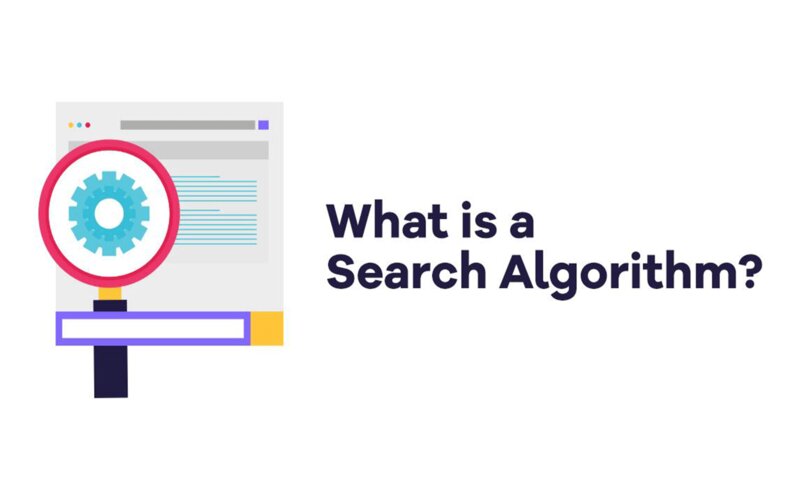Online search engines have evolved a lot. Gone are the days when people used to turn to books, magazines and journals for everyday information. In this information age, they simply type on the search button whatever queries they have in mind and get all the information they need. Information is a big business. And the major chunk of this online search business goes to Google, which is the number one online search engine in the world. As per rough estimates, Google receives and processes approximately 8.5 billion search queries per day. Given such a humongous volume of search queries it receives every day, it would not be an exaggeration at all to identify the name Google as synonymous with online search.

Now, the question is how did Google earn this status quo? What did it do to distinguish itself from all the other search engines leaving them miles behind? The answer lies in the Google algorithm. The algorithm is a mathematical term. By definition, it denotes a finite sequence of specific instructions that are used to perform computations or solve intricate problems. In computer science, this same algorithm is used in the complex data processing. As a matter of fact, Google has developed and perfected its own algorithm or sequence of instructions over the years which delivers an unparalleled user experience to online searchers. Needless to say, it has been possible only because of years of tireless research on the subject and continuous systems upgradation. It has conducted an uncountable number of experiments and released numerous system updates in the past few years to ensure that all indexed web pages are ranked by relevance on its SERPs (Search Engine Results Pages). In 2022 alone, Google released eight major system updates. Add to it the minor experiments it conducts and changes it makes almost ten to twelve times a day.

This article compiles all the latest SEO algorithm updates from Google and analyses their impact on websites. These updates were released in 2022 with the latest one being rolled out as recently as October 19th. They are mentioned below in reverse chronological order with the latest one on top.
Google Updates 2023

E-A-T is one of the most important Seo factors now, it stands for Expertise, Authoritativeness, and Trustworthiness. It is a term coined by Google that refers to the quality of content on a website and is used to evaluate the reputation and credibility of a website and its content.
Expertise refers to the level of knowledge and skill that a website’s author or content creator possesses in their field or industry. Authoritativeness refers to the level of influence or respect that a website has within its industry or niche. Trustworthiness refers to the overall reliability and honesty of a website and its content.
Google uses E-A-T as a key factor in determining the quality and relevance of a website’s content. Websites that demonstrate high levels of E-A-T are more likely to rank well in search engine results pages (SERPs).
To improve the E-A-T of a website, it’s important to:
- Provide high-quality, relevant, and accurate content that is well-researched and supported by reputable sources.
- Showcase the expertise and authority of the content creators and authors through author bios, credentials, and social proof.
- Build a strong reputation and trust with users by providing transparency and honesty in the content, as well as maintaining a positive online reputation.
Overall, E-A-T is an important consideration for any website looking to improve its search engine visibility and credibility. By focusing on creating high-quality, expert, authoritative, and trustworthy content, website owners can improve their chances of ranking well in search engine results pages and attracting and retaining a loyal audience.

- User Intent and Entity Search: Google’s algorithms are likely to continue to prioritize understanding user intent behind search queries and focusing on entity search to provide more relevant results.
- Core Web Vitals and Page Experience: Google’s emphasis on page experience and Core Web Vitals, which measure page speed, interactivity, and visual stability, is expected to continue in 2023.
- Voice Search and Conversational AI: With the growing popularity of voice search and advancements in conversational AI, businesses may need to focus on optimizing for voice search queries and providing conversational content.
- Visual Search and Image Optimization: Visual search and image optimization are expected to become more important in SEO in 2023, with Google likely to place more emphasis on visual content and image search results.
- Augmented Reality and Virtual Reality: As AR and VR technology continues to evolve and become more widespread, businesses may need to optimize their content for these platforms to improve their visibility in search results.
It’s important to note that these are just projections and predictions based on current trends and emerging technologies. Google’s algorithms and updates can be unpredictable, and businesses should stay up-to-date on the latest developments in SEO and adapt their strategies accordingly.
Google algorithm updates in 2022

1. October spam update

This month on October 19th Google released a major spam update. The update was a global one and affected all languages. The official announcement was made through Google’s Twitter handle with a predicted rollout completion time of about two weeks. But Google eventually completed the update within a record 48 hours.
What all are included in this update?

Google claims that its robust algorithm identifies the most reliable and relevant information from hundreds of billions of web pages indexed by its bots to help users find answers to whatever queries they have. And Google’s pinpoint accuracy in producing meaningful search results every time a user uses its platform is a real testimony to these boastful claims. To maintain its indisputable data supremacy, the global search giant, detects and purges low-quality websites and pages that lure unsuspecting users with the promise of providing seemingly relevant information and trick them into sharing their personal and financial details ultimately leading them to an unprecedented amount of losses. This spam update is intended to act against such deceitful websites and pages. As a matter of fact, Google releases such spam updates on a regular basis.
What impact does this update have on websites?

Google is very strict with its spam policies. And the latest update asks all publishers to comply with its no-nonsense spam mandate. This update would come heavy on the websites which have thin content, keyword stuffing and AI-generated as well as irrelevant content. As per reports, Google would systematically demote those sites that violate its updated spam policies and even remove them permanently from Google’s Index. Therefore, Google advises all website owners and publishers to go through the policies in detail and make necessary changes to avoid such an undesired outcome.
2. September Product Review update

Google started rolling out this update on 20th September this year with the official Twitter account for the company announcing that it would complete the updation process by the next week. Unlike in the cases of all other major updates, Google did not release any guidance on the update this time apart from issuing some indirect comments and references in the first week of September.
What is this Product Review update?

This update related to the product review algorithm encourages in-depth research on products. There are websites that publish genuine product review articles written by authors who have tried and tasted the products themselves. Once this product review update is complete, Google would be able to identify such genuine sites and articles where authors and publishers put their best efforts to first try the products themselves, find the pros and cons of the products and inform as well as educate people about the same providing authentic user experience. This would also help Google identify and sort out those websites that publish fake reviews or thin content by simply summarizing or paraphrasing product release quotes and statements from the product manufacturers.
What impact did this update have on websites?

This update would positively impact genuine product review websites that publish long-form in-depth product analyses with photos and videos and bring those websites down in ranking which publish superficial and fake reviews. But this update doesn’t affect those e-commerce websites where customers write their reviews against specific products.
Core Algorithm Update

Core algorithm updates are deep system changes that produce large noticeable results. Effects of some of these changes may remain underlying in the initial phases while supplementing other major updates. However, their effects eventually show up in the long run. Google launched a two-week-long core algorithm update on September 12, the purpose of which it did not clearly disclose in its official release statement. It was 2022’s second core algorithm update after May.
- What impact did this update have on websites?
Neither Google clarified it nor was there any visible impact on the ranking of any website. But since it was a core update, there were some apprehensions in the market, nonetheless, about the downward impact this update could create on affiliate marketing websites. What actually happens due to this system change, however, remains to be seen.
Helpful Content Update

It was supposed to be the year’s biggest impactful algorithm update. Instead of affecting specific pages or articles, this update was designed to affect the whole website. Google launched this update on 25th August and finished the process on 9th September, just 3 days before the Core Algorithm update was rolled out.
What was this Helpful Content update all about?

In Google’s words, it introduced a new ranking signal through this update which aimed to penalize those sites that published a huge volume of content only to rank well in search engines without adding any value to the real consumers of any specific form of content. Google further clarified in its release note that all these websites that produced such unhelpful content on a regular basis and had a significantly large amount of them in their databases, would gradually find themselves being pulled down in rankings and eventually be removed from the SERPs. The idea was to help those websites move up in rankings that actually helped users with relevant content rather than those that tricked Google to climb up. Google also published a set of 15 questions that it advised every new website or the existing ones to go through and ask themselves to ensure that they are producing helpful content for users’ benefit.
- What impact did this update have on websites?
This update was expected to primarily affect educational, shopping and tech-related websites also leaving its decisive impact on arts and entertainment-based sites. Google suggested removing all unhelpful content from its database if the ranking of any website suffered because of this update. Through the official statement, Google further warned and advised all new websites and the existing ones to take this update seriously as there were classifier bots within this update that were continuously monitoring every website. Although some websites were affected globally due to this update, it failed to create any immediate panic-creating impact.
July Product Review update

Google released this update on July 27 with an official announcement, predicting a rollout completion timespan of two to three weeks. But it managed to completely update the system in only six days.
- What impact did this update have on websites?
As it turned out, this update was meant to plug in a few gaps in previous algorithm updates. It had some impact on e-commerce websites, but Google also published documents that taught these websites methods to write high-quality product reviews. Overall, this update didn’t create any widespread impact on the websites.
May Core update

To improve the overall search experience for users and to keep pace with the changing demand of time, Google released a core update on 25th May. It was the first core update of 2022 and the next since November 2021. Google didn’t mention any particular touch point related to this algorithm update in its guidance literature. Every sentence used in the published guidance was a general statement normally issued with all other update releases.
- Any impact on websites?
Nothing that was broadly visible. Nor were their impact immediately felt. But given the history of core updates, it is sure that with this update, Google silently made some major changes in its ranking methodology and in the way it assessed content and processed data.
March Product Review update

This product review algorithm update was launched on 23rd March 2022 and went on for several weeks as priorly informed by Google. It was Google’s 3rd Product review update, the first being released almost a year ago in April 2021.
- What was new about this Product Review update?
In its quest for establishing a reliable system that identified high-quality product reviews, Google launched this update with much fanfare. It wanted to reward the sites or pages and their creators with high rankings on SERPs for giving genuine purchasing advice to the users and being truly helpful. So, it came up with a new set of guidelines for publishers and creators that emphasized the importance of creating unique informative content beyond the release notes provided by the manufacturers to rank prominently on Google. It specifically talked in the guideline about the importance of photographs, videos and audio and any other form of content that highlighted the product reviewer’s personal experiences with the products. Google also clarified that this update was applicable to all kinds of product review content, and adherence to these guidelines could be detrimental to a site’s online rankings.
What impact did this update have on websites?
This update mainly affected the rankings of those websites that published product reviews in English. It set the stage for creating multiple product reviews with enough useful content without sounding repetitive.
February Page Experience Update (Desktop)

On February 22nd, 2022 Google announced via its official Twitter account that it had launched a Page Experience update the same day and that it expected to complete the update by the end of March. It was a slow rollout and Google intended to target desktops with this version of the update. In its own words, it was an extension of the mobile version of the search engine algorithm it launched back in 2021.
- What was new about this Page Experience update?

This update didn’t consider mobile-friendliness as a ranking factor for the desktop versions of a website, meaning that from February onwards, desktop versions of websites could get a boost in search engine rankings even if their mobile versions weren’t optimized provided that all other conditions were fulfilled and criteria met. It included a separate report section in Google Search Console for desktop versions of websites that evaluated the desktop page experience. This desktop report section looked almost identical to the mobile report section and was placed right below it.
- What impact did this update have on websites?
Mobile compatibility affected the rankings of many websites before. The desktop versions suffered even if they met all other criteria. This update freed the desktop versions of websites from this unnecessary dependence. Also, the new report section on Google Search Console positively impacted the desktop versions of websites because now publishers could focus on important factors that affected their rankings and monitor their performances.
Conclusion

“Rome was not built in a day.” Similarly, the Google search you experience today wasn’t created all of a sudden. Nor did the Google search reach such gigantic proportions overnight. The famed Google algorithm that has built this giant structure step by step over the years has also been a topic of much discussion and external research globally. While nobody knows exactly how this algorithm functions, Search engine marketers, content creators and publishers are left with no other options but to depend on the new guidelines provided by Google every time a new algorithm update is launched. And all these guidelines reiterate the same sentiment – providing relevant, helpful and user-friendly content for a genuine user-centric online search experience which seems to be the motto of the global tech behemoth. Therefore, every SEO algorithm update Google brings rewards the creative best practices and punishes those who rely on tricks rather than helping users with useful content. The purpose of this article is to inform site owners and marketers about the latest changes in SEO algorithm and show them how Google sticks to its goal of continuously strengthening and updating its algorithm to deliver instantly the best possible results for an online search query.





